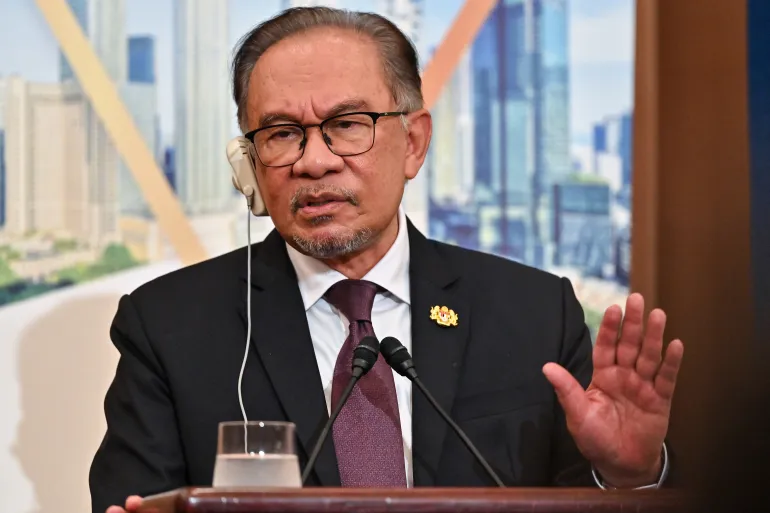
Malaysian Prime Minister Anwar Ibrahim has announced that Malaysia will be initiating the process of joining BRICS, a coalition of major emerging economies originally comprising Brazil, Russia, India, China, and South Africa. This move, Anwar indicated, is part of Malaysia's strategy to align more closely with the Global South and to support alternative global economic structures.
In an interview with Chinese media outlet Guancha, Anwar stated that Malaysia is awaiting feedback from South Africa before formally beginning the accession process. “We have made our policy clear and we have made our decision. We will start the formal process soon. As far as the Global South is concerned, we are fully supportive,” he emphasized.
Anwar’s remarks highlight a significant shift in Malaysia’s foreign policy, aiming to bolster ties with non-Western nations. The Prime Minister’s criticism of the US dollar’s dominance in international trade underscores this pivot. He echoed sentiments expressed by Brazilian President Luiz Inacio Lula da Silva, noting the negative impact of the US dollar’s global hegemony on emerging economies. Anwar pointed out that despite Malaysia achieving its highest investment levels last year, its currency still faced speculative attacks, which he argued defied basic economic principles.
“Last year Malaysia had the highest investment ever, but the currency was still attacked. Well, it has eased in the past few weeks. But it doesn’t make sense, it goes against basic economic principles,” Anwar said. He criticized the international reliance on the US dollar, describing it as “irrelevant” to the economic activities within Malaysia and many other countries, and ascribed its dominance to historical factors rather than current economic realities.
BRICS, founded in 2006, expanded its membership in January to include Egypt, Ethiopia, Iran, and the United Arab Emirates (UAE). The bloc aims to promote peace, security, and development in emerging economies, offering a counterbalance to Western economic dominance.
Anwar’s interview also praised China’s rise, calling it a “glimmer of hope” for introducing checks and balances to global power structures. He lauded Chinese President Xi Jinping as an “outstanding leader” who emphasizes the importance of rejuvenating Asian values. “When I first met President Xi Jinping, I was attracted to him because President Xi is one of the few outstanding leaders who talks about civilization. In a sense, he is unique,” Anwar said.
Additionally, Anwar criticized the Western focus on Hamas’s October 7 attack on Israel, describing it as a narrative that overlooks the broader historical context of the Israeli-Palestinian conflict. “People keep talking about October 7, which annoys me. Do you want to erase 70 years of history by harping on one event? This is the Western narrative. You see, this is the problem with the West. They want to control the discourse, but we can no longer accept it because they are no longer a colonial power and independent countries should be free to express themselves,” he asserted.
Anwar’s comments came ahead of Chinese Premier Li Qiang’s visit to Malaysia, marking the 50th anniversary of diplomatic relations between the two nations. During Li’s three-day visit, Kuala Lumpur and Beijing are expected to renew a five-year economic cooperation agreement and sign deals in areas such as the digital economy and green development. China has been Malaysia’s largest trading partner since 2009, with bilateral trade reaching 450.84 billion ringgit ($98.90 billion) last year.
The decision to join BRICS and the deepening ties with China reflect Malaysia's broader strategy to diversify its international partnerships and reduce its economic reliance on Western countries. This strategic realignment signals a significant shift in Malaysia’s foreign policy, potentially altering its economic and geopolitical landscape in the coming years.

















